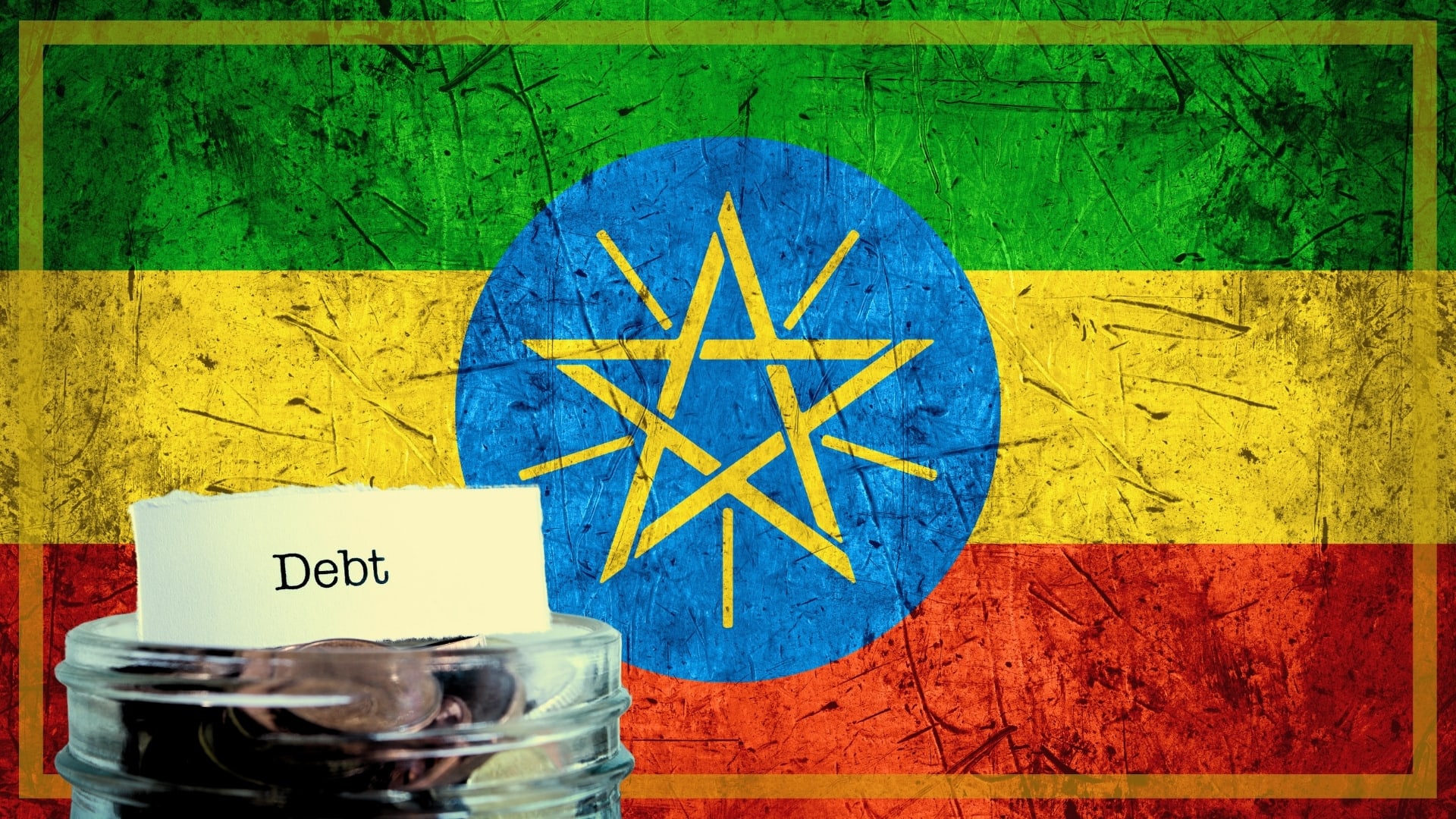On Monday this week, Ethiopia failed to pay a $33 million bond repayments to private international bondholders. While the government in Addis Ababa has scheduled a call for tomorrow in the hope of agreeing a restructuring deal within the two-week grace period, Ethiopia now seems set to join Zambia and Ghana as the latest African countries to default on its debt.
The precise reasons for the looming technical default are disputed, not least because Ethiopia has a relatively low debt to GDP ratio and the repayment amount of $33 million is low. Only a couple of weeks ago, the governor of Ethiopia’s central bank told the Ethiopian parliament that the East African country had secured more than $1.5 billion in temporary debt relief from international creditors. Earlier this year, China, which has lent an estimated $13.7 billion to Addis Ababa, also agreed to suspend debt repayments on bonds maturing next year.
How has Ethiopia therefore ended up in the perilous position of a debt default, which is likely to wreak havoc on the country’s reputation on capital markets and severely restrict its ability to borrow to fund its substantial current account deficit? Many observers have come to the conclusion that the government has simply failed to communicate with its private creditors effectively or sufficiently – with potentially disastrous results.
Ethiopia is set to join Zambia and Ghana as a sovereign defaulter, with an interest payment falling due to its bondholders that the the state says it won’t meet https://t.co/dyNAjs6JLl
— Bloomberg (@business) December 11, 2023
While the causes of the default are not yet clear – and are likely to be complex and multifaceted – human rights activists and critics of Abiy Ahmed’s governments have pointed to the significant economic impacts of the civil war in Tigray. The conflict was launched in November 2020 after the Ethiopian army attacked Tigrayan troops who had seized a military base in Mekelle, but the tensions are more deep-rooted because of an ethnic based power struggle within Ethiopia’s federal system. Ethiopia has been accused of war crimes and human rights abuses during its Tigray campaign.
An economist in Addis Ababa, who wished to remain anonymous, told Disruption Banking that the war in Tigray has come with significant economic costs and has also distracted the government from what many believe should have been its more pressing tasks.
“This situation has probably come about because of poor communication with bondholders – the government officials are not sufficiently knowledgeable and simply don’t how to navigate financial markets in this way,” the economist said. “Because the country was in a civil war for the past two years, they had even less capacity to consider this issue, and this means bondholders weren’t communicated with properly. The situation also did not help Ethiopia’s image on markets or in the eyes of international creditors.”
War costs lives, and war costs money. The war on #Tigray has had devastating impacts on the Ethiopian economy. Read the 🧵below to learn more. pic.twitter.com/ra3FJaplHD
— Omna Tigray (@OmnaTigray) February 28, 2023
Getachew Temare, a human rights activist, also pointed to the war in Tigray as a contributing factor to Ethiopia’s debt default. “We can definitely approach the ongoing economic downturn in Ethiopai from the perspective of the war in Tigray,” he said. “Many factors and manufacturing hubs were destroyed, as well as key infrastructure. Exports went down and this meant Ethiopia received less foreign exchange, making it harder to service dollar-denominated debt. Unemployment also went up significantly, further feeding into the country’s economic troubles.”
“The other thing that is not being covered by international media is how much corruption is damaging the Ethiopian economy and pushing it into debt distress,” he added. “It’s hard to get genuine or credible data from the government, but all of my friends and contacts in Ethiopia say it is very difficult to work right now in Ethiopia because of corruption and the government’s domination of industries. The government has said that it wants to liberalise the economy, but it is only doing so in specific sectors, there is no broad-based economic policy of liberalisation. This is an important part of Ethiopia’s troubles.”
"Corruption is Ethiopia’s number one enemy. It affects the poor, who do not have access to finance. Instead of financing development projects, banks finance consumption, which automatically leads to inflation."https://t.co/wz6vuZ5mPJ
— #DisruptionBanking (@DisruptionBank) December 13, 2023
Regardless of the cause, Ethiopia’s technical default is likely to cause significant economic problems in the East African country. While it depends on how effectively the government manages the situation, in the worst case scenario, Ethiopia could see a permanent decline in GDP per capita and substantial reduction in living standards, alongside higher inflation. At least in the short term, Ethiopia is almost certain to face higher borrowing costs on capital markets and therefore find it more expensive to service its existing liabilities and current account deficit.
Author: Harry Clynch
#Ethiopia #Tigray #CapitalMarkets #Africa #HumanRights
















One Response
Thank you for this. Unfortunately, the world has been too preoccupied with other urgent matters to have taken sufficient notice of what has happened in Ethiopia, which the government has tried, with some success, to hide. Consequently there is much real suffering and injustice, and a widespread sense of hopelessness among many sections of the population. Any thing which exposes this and puts pressure on the government is surely to be welcomed.